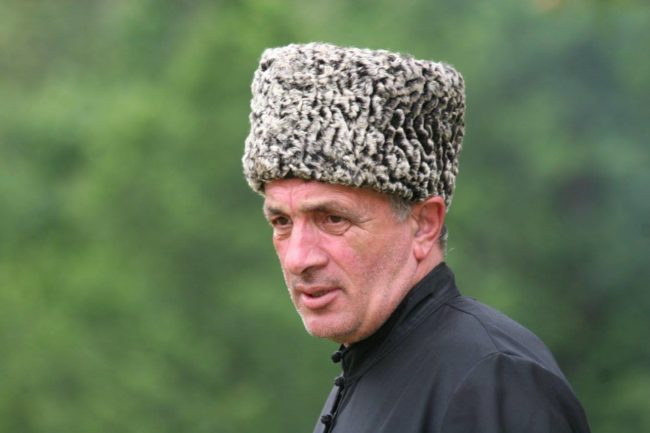
 Krasnodar’s regional appellate court has upheld a fine against Ruslan Gvashev, a former Circassian leader, for performing a traditional Circassian prayer.
Krasnodar’s regional appellate court has upheld a fine against Ruslan Gvashev, a former Circassian leader, for performing a traditional Circassian prayer.
The court rejected Gvashev’s complaint on 16 October, Caucasian Knot reported, despite his lawyers claiming his right to freedom of religion had been violated. Gvashev, currently staying at a sanatorium in Kabardino-Balkaria, was reportedly unable to attend the hearing.
Gvashev performed the prayer on 21 May, which marks the Day of Remembrance of the Circassian Victims of the Caucasian War (Circassian Day of Mourning) 1817–1864. Gvashev is a former head of the Circassian Shapsug Council of Elders; Shapsugs are a Circassian subgroup from Krasnodar Krai.
[For background, read on OC Media: Rally in Sukhumi for hunger striking Circassian leader]
Gvashev had been on hunger strike for more than three weeks in protest at his prosecution, but abandoned the strike on 5 October at the behest of supporters after suffering from a stroke.
He began the strike on 11 September after an appellate court upheld the fine against him for performing a public prayer at a sacred tulip tree in the village of Golovinka, near Sochi.
Sochi’s Lazarevsky District Court imposed a ₽10,000 ($170) fine against Gvashev on 2 June for ‘organising an unsanctioned demonstration’, Caucasian Knot reports.
According to them, the fine was suspended by Krasnodar Krai Regional Court on 2 August but then reinstated again by the original court on 30 August. The complaint was then returned to the regional appellate court, which was due to a final decision in the beginning of October.
However, as Gvashev travelled to the hearing by ambulance where a number of supporters were gathering, the appeal was postponed.
The case has stirred controversy in neighbouring Abkhazia, with a number of Gvashev’s supporters demonstrating in solidarity with him in Sukhumi (Sukhum) and Sochi. Gvashev fought in the 1992–1993 war on the side of Abkhazia and Abkhaz and Circassians share historic, cultural, and linguistic links.
For ease of reading, we choose not to use qualifiers such as ‘de facto’, ‘unrecognised’, or ‘partially recognised’ when discussing institutions or political positions within Abkhazia, Nagorno-Karabakh, and South Ossetia. This does not imply a position on their status.




 17 October 2017
17 October 2017


